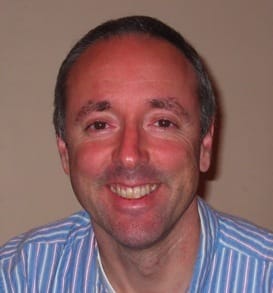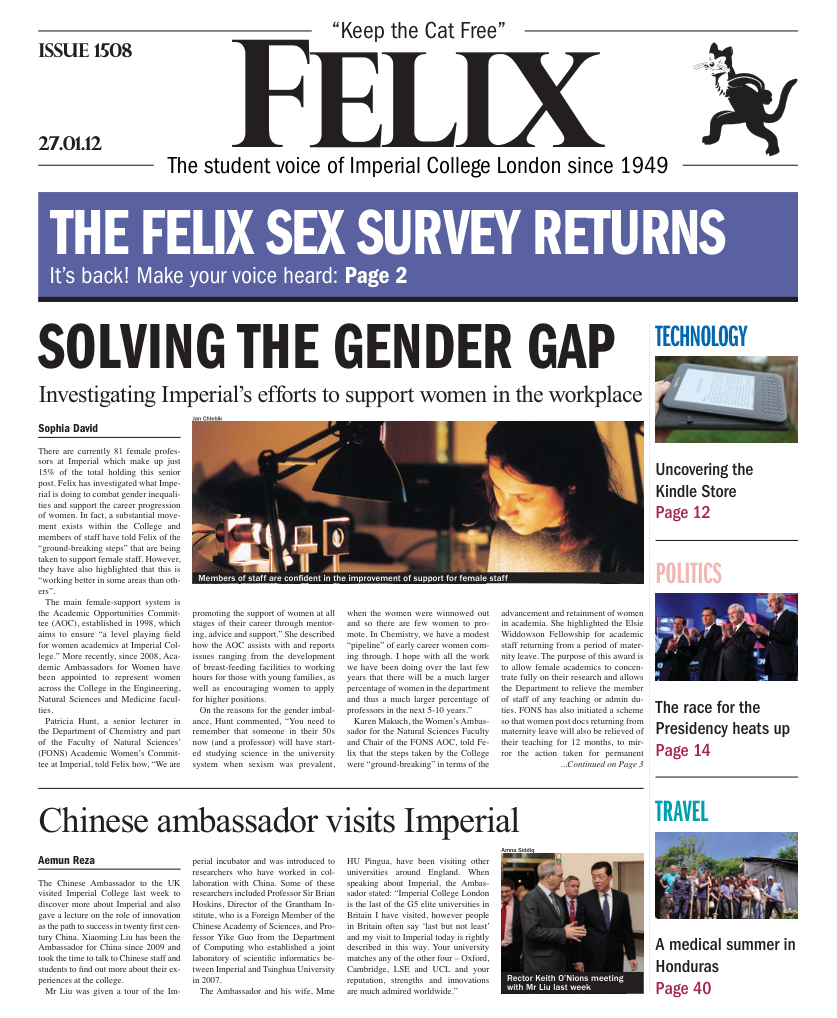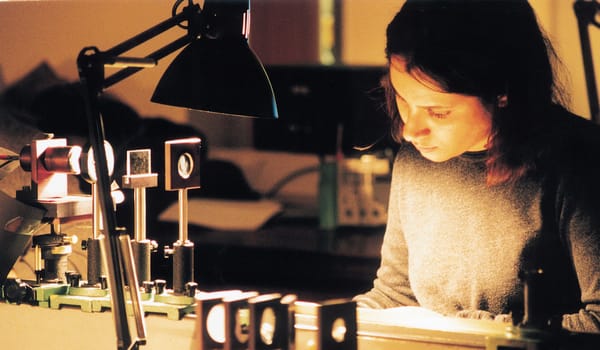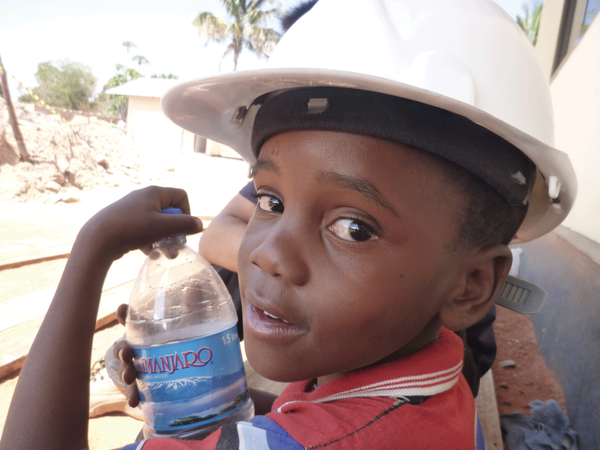How to become a science journalist
Alice Yang talks to Dr. Toby Murcott about his not so straightforward career path

An animated and passionate figure in person, Dr. Toby Murcott is as one would imagine the typical science journalist – never without an opinion, in possession of an open (yet critical and witty) mind and of course, a seemingly unlimited knowledge of everything within the bounds of science.
The fact that he can educate me on the human genome, and equally as well strike up a heated debate regarding the latest happenings at CERN, is to be expected given that he includes BBC Radio 4, The Times, Nature magazine as well as his own critically acclaimed book The Whole Story: Alternative Medicine on Trial? amongst an impressive list of journalism projects in the past 20 years.
Highlighting the uncertainties that many science journalists face when embarking on their career path, Dr. Murcott begins his life story with more than just a hint of humour in his voice.
“Like so many people in this industry it wasn’t a straightfoward story. I did a PhD in Biochemistry at Bristol University and then I moved onto a Postdoc which is when I began to realise that I was not the greatest research scientist – I quite enjoyed it but not as much as I was hoping to.
...I began to talk more about science rather than do it.
At the same time, without really knowing it, I began to be a lot more involved in talking about science rather than doing it.”
Thanks to his long love of speech radio, Dr. Murcott kicked off science journalism career in the medium, spending his days working on his postdoc and his evenings building up his radio CV.
Having entered the world of radio journalism, Dr. Murcott also spread his knowledge into written journalism, eventually leading to the publication of his book inspired by his weekly column in The Times discussing the scientific evidence behind complementary health treatments. Nevertheless, despite all his successes in writing science, Dr. Murcott is unhesitant in claiming his preference for radio journalism.
“It’s very noticeable that people who work in a particular field tend to love that field and really enjoy it, and I love to listen to radio for pleasure. There are a number of satisfying things about radio, one of which is that you hear real peoples voices and it’s a very intimate medium and its very satisfying to have that almost one to one connection with people, giving them something interesting.”
Currently also a lecturer in Science Journalism at the City University London, Dr. Murcott points out that he never underwent formal training in science journalism himself, and asked whether or not he feels that such courses are essential for success he declares, “I don’t think there is an obvious answer, everyone is different.”
“What a masters [in science journalism] does is it condenses and puts into one place the various elements you need which are: practice, criticism and work experience. It’s not essential, but it is one way of doing it. A good course is very valuable.
“I don’t think that any journalist needs to be an expert on any subject other than journalism. But, the things a science journalist needs is to know is what questions to ask; to have an understanding of the process of the work they’re reporting on, as well as how science works so they’re able to rigorously examine the science that is laid out in front of them.”
A science journalist needs to know what questions to ask
On the topic of science journalism, I wonder what Dr. Murcott’s views on ‘good’ and ‘bad’ science journalism are.
“You have to ask ‘What is the purpose of journalism?’ Now there are a lot of things a journalist would say – to hold people who have public money to account and to comment on all sorts of things. But actually, the point of journalism is to sell and get an audience, because unless you do that, you have no money to do the reporting or research you want to do.
“I think we need to train journalists to understand what science research can and can’t do, but I also think we need to trust people to know the difference between gossip and really serious science research. I’ve certainly gotten angry reading bad science reports, but the media is not here to educate – that’s the job of schools and universities.
“This leads us onto discuss science in general, to which Dr. Murcott has much interesting information to impart.
“There’s a very good analogy of science: if you imagine all our knowledge is a sphere, then the edge of the sphere is where our knowledge of the known leads the unknown. As you increase the amount we know, that sphere gets bigger and so of course its surface area gets bigger – the more we know and the more we uncover, the more we realise we don’t know.”
As for what particularly interests him currently in the world of science, Dr. Murcott answers fluently “firstly, anything to do with the genome and genomics. It won’t be that long until we can sequence an entire human genome in a matter of hours, and the things that can be done with genetics is just mind-boggling.
...take a moment and think ‘What do I really like doing?’
“I think the other thing is particle and high-energy physics. We’ve got a standard model that was developed in the 1920s which has stood up reasonably well but is starting to show signs of weakness at the edge; and while hunches are never reliable, I wouldn’t be surprised if there was a major revision of the standard model of physics in the relatively near future.
“I also think another area that is very interesting is the increasing computing power as it has allowed people to make much more complicated and elaborate mathematical models which have allowed us to test our understanding of what we know. We can test anything from climate science through to chemical equations, it can help us understand environmental issues and improve our knowledge in reducing energy consumption. Powerful computers are allowing us to do amazing things.”
Naturally, this leads onto a discussion regarding the recent results from CERN claiming that the speed of light had been broken, to which Dr. Murcott is confident is not the case.
“There is some small error that they haven’t spotted. But what this story is is a beautiful story about how science works. What’s happened is that these researchers have looked at these neutrinos and have tried to find the problem, which they can’t, and so they’ve put it out there for other scientists to look at. It’s not a story about neutrinos going faster than light, it’s a story about how science works to get the most reliable answers to a particular question.”
Before wrapping up I ask him for any words of wisdom he’s like to offer to Imperial’s budding science journalists.
“Advice I’d give is to stand still, take a moment and think ‘What do I really like doing? When I want information from the world where do I get it from?’ because you’re going to do better in a medium you know, like and understand.
The most important thing about being a science journalist is having done something that gives you practice and experience, and finding out whether or not you can really do it.
What I think is very hard to do and very often lacking in science journalism is a deep understanding to how science works, and recognising why it is that when you ask a scientist a big question they can’t give a clear answer.
Deep down it’s a combination of curiosity, nosiness and fascination; the ability to meet a deadline; to be able talk to and extract information from scientists, and of course strong communication skills that makes a good science journalist.”








